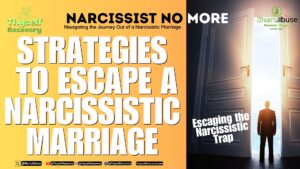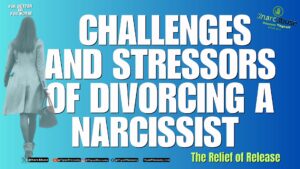How to Get Out of a Marriage With a Narcissist?
Making the decision to leave an abusive narcissistic marriage is extremely difficult and complex. Safely planning your exit to maximize well-being and minimize harm requires strategic thinking and discretion. Having an escape plan in place can alleviate overwhelming feelings of entrapment. Here are some key steps to help you regain your freedom:
Consulting Divorce Lawyers
Discreetly research family law attorneys experienced with high-conflict divorces involving narcissists. Consult with several to understand your rights and options. Make sure you feel completely comfortable with the one you ultimately hire. Questions to ask:
- How can we document and prove narcissistic abuse?
- What strategies work best negotiating with narcissists?
- How do you deal with false accusations and distortion campaigns?
- How can we gain optimal division of assets and custody arrangements?
- What security measures would you recommend during separation?
Gaining Financial and Emotional Independence
Before announcing your departure, take steps to disentangle from the narcissist’s control in both finances and emotions:
- Cultivate friendships to build your confidence and social support.
- Open your own bank accounts, apply for your own credit cards, and establish savings in your name only.
- Research affordable housing options should you need to urgently move out.
- Meet with a career counselor to develop employable skills if you have been financially dependent.
- Consult with a therapist about codependency and enmeshment issues.
Securing Safe Housing
Figure out where you will go after leaving the marital residence. Options include:
- Renting your own apartment.
- Staying with empathetic family or friends until you get set up independently.
- Contacting domestic violence agencies about temporary shelters if concerned for physical safety.

How to Get Out of a Marriage With a Narcissist #XNarcAbuse ThyselfRecovery
Surrounding Yourself with Support
Don’t go through this alone. Build your network of support:
- Join a support group to connect with others who understand narcissistic abuse.
- Lean on family and friends who can remind you of your worth.
- Hire a therapist knowledgeable about narcissism and high-conflict divorces.
- Read books by experts on safely exiting narcissistic relationships.
Documenting Evidence
Keep records of the narcissist’s behaviors in case you need to prove claims in court:
- Save hostile texts, emails, voicemails, etc.
- Note incidents of abuse in a journal with dates and details.
- Take photos of destruction of property or injuries.
- Have witnesses sign affidavits confirming the abuse they observed.
Exploring All Options
Look at all potential pathways to leaving:
- Legal separation involves living apart but remaining married.
- Filing for divorce permanently dissolves the marriage.
- An annulment nullifies the marriage but has strict qualifying criteria.
- In some areas, you can file for legal emancipation from the spouse while still technically married.
Informing Family and Friends
Notify close family and friends you trust about the situation tactfully:
- Help safe, supportive individuals understand why this is necessary.
- Accept their support and encouragement; ignore unsupportive or toxic reactions.
- Ask them to refrain from mentioning your plans to the narcissist.
- Brief them on communication protocols post-separation to maintain discretion.
Strategies for Smoothly Navigating Custody Plans
If you have kids, seek counsel from divorce and custody lawyers regarding optimal arrangements. Also:
- Enroll children in therapy to help them process emotions in a healthy way.
- Teach age-appropriate skills for managing the narcissistic parent’s behaviors.
- Use a co-parenting app to communicate about visitation schedules.
- Have witnesses present for custody exchanges if concerned about safety.
- Document any parental alienation efforts or abuse.
- Follow court orders precisely to avoid claims of contempt.
Pursuing Your Passions and Purpose
The most rewarding part of escaping comes when you finally get to:
- Figure out your dreams and rediscover who you really are, independent of the narcissist.
- Travel freely wherever you wish without criticism.
- Indulge your hobbies, interests or sports without guilt.
- Return to school or launch the career you’ve always wanted.
- Forge new, healthy relationships with emotionally available people.
- Embrace the peace and contentment of finally being free.
With insider legal guidance and diligent planning, you can prepare for a clean break and look ahead to a joyful, purposeful life.

